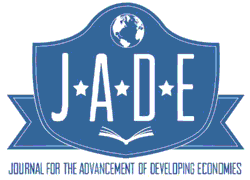Institute for the Advancement of Developing Economies
Date of this Version
2020
Document Type
Article
Citation
Journal for the Advancement of Developing Economies 2020 Volume 9 Issue 1, pp 1-13. doi 10.32873/unl.dc.jade911
Abstract
The motivations underlying the desire for luxury products and services have long been the subject of academic inquiry. An understanding of these motivations is useful for the luxury market industry to help managers formulate better marketing strategies. Further, such knowledge would also be useful to public policy makers to help them mitigate societal problems that may occur as a result of such consumption. Of particular interest is the growth of the luxury market in emerging economies. This study spotlights the luxury market in Tunisia. Previous work has demonstrated that age has a significant impact both on willingness to buy luxury products and spend significant proportions of one’s disposal income on such products. As an extension, the objective of this research is to extend these findings by exploring the interactions of age with other demographic variables. Based on survey data obtained from Tunisian Facebook users and analyzed using cross tabulations, this empirical research supports the hypotheses that gender, income, education and marital status moderate the inverse relationship between age and luxury consumption.
Included in
Econometrics Commons, Growth and Development Commons, International Economics Commons, Political Economy Commons, Public Economics Commons, Regional Economics Commons


Comments
(c) Institute for the Advancement of Developing Economies 2020